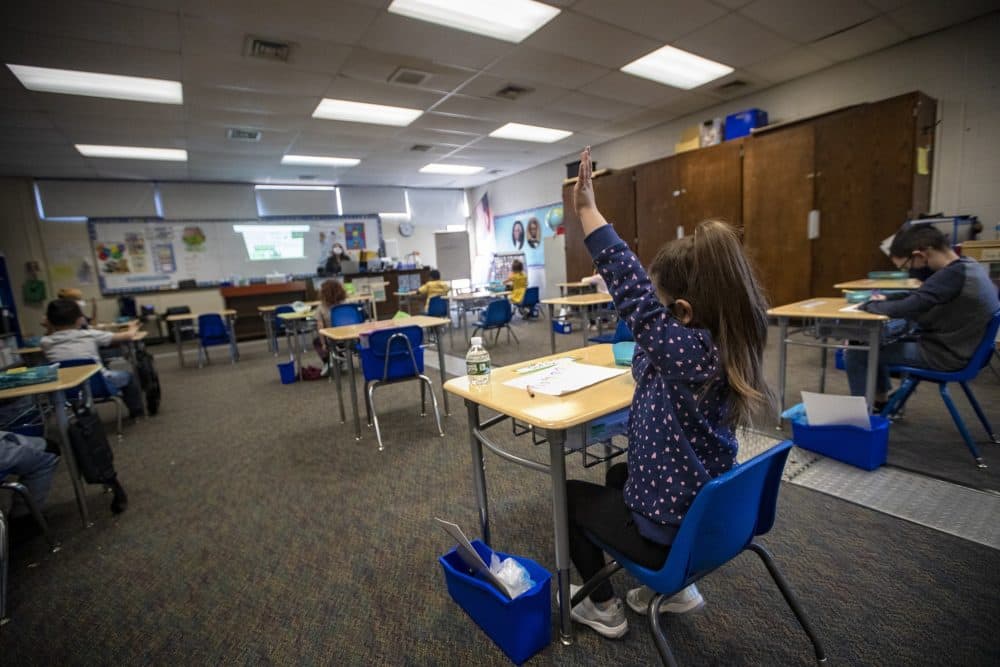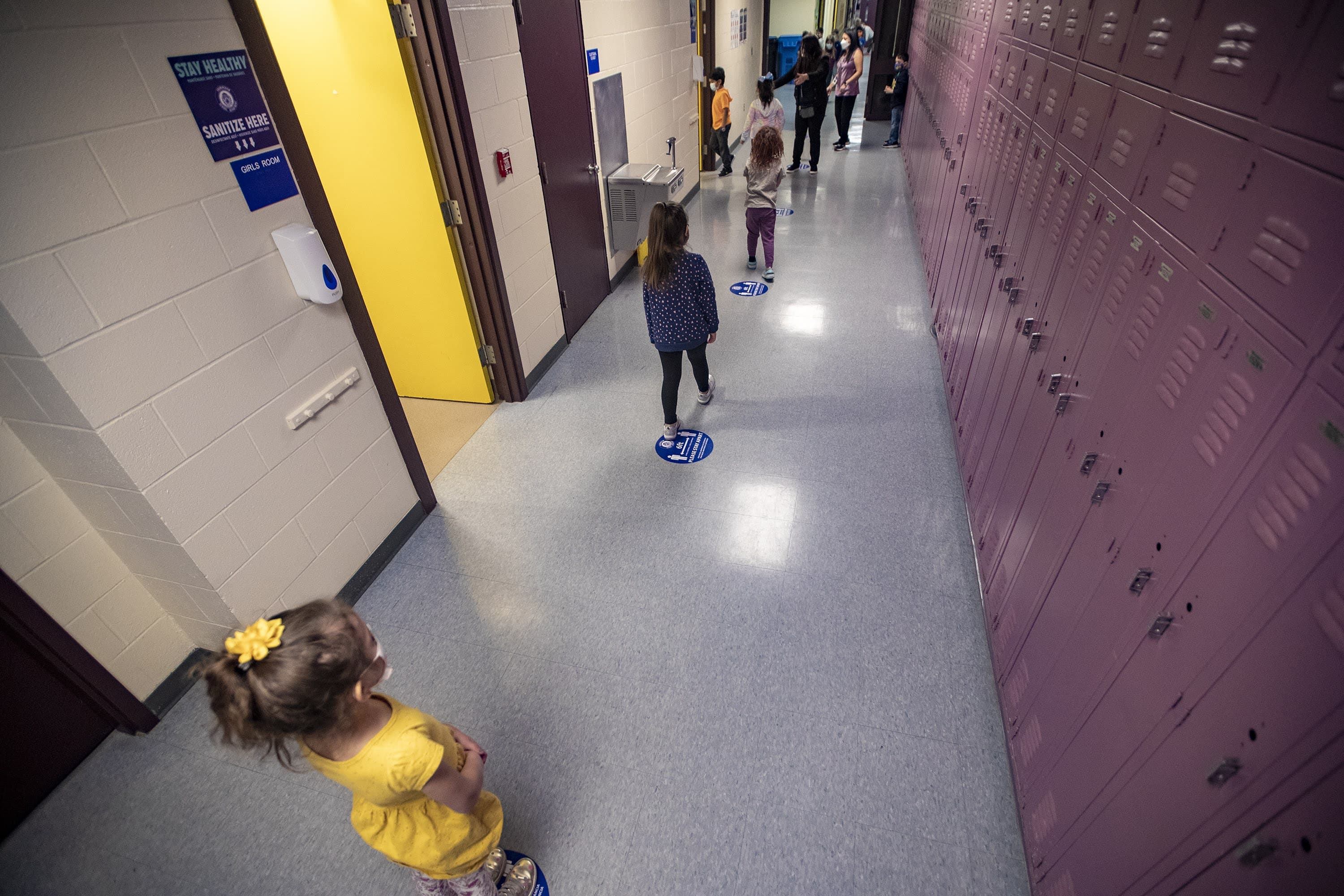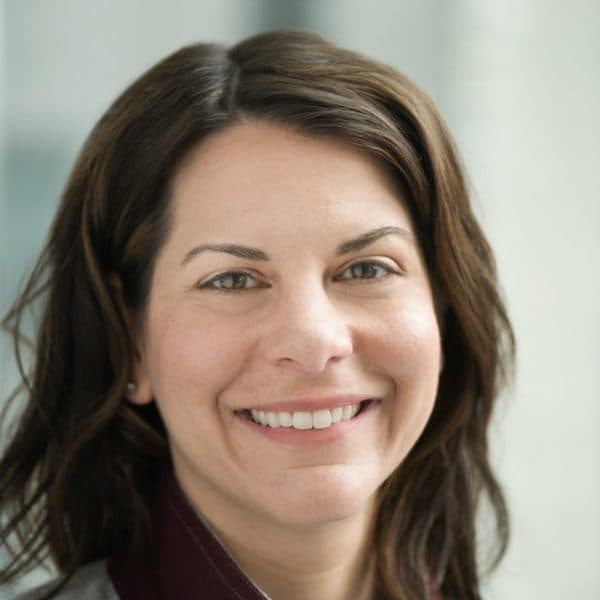Advertisement
Commentary
Kids Are Returning To School. But Let’s Avoid A Return To Academic Pressure

For the first time in over a year, some students across Massachusetts are headed back to full-time in-person school this week. “It’s sort of like the first day all over again,” noted a fifth-grader in my therapy practice.
Except there’s never been a first day of school quite like this.
As with any first day, there is a mix of excitement, anticipation and anxiety. My own 11-year-old worried about what to bring for lunch and about the new students joining his class. There are unique worries about keeping teachers and students safe from COVID-19 and about what students have lost in learning, social and emotional development. There are a small but important number who have done better with remote learning. Their anxiety about the return is altogether different.
The rationale for a return to in-person learning is that students are suffering. With vaccines being distributed at a quickening pace, the threat of a mental health pandemic outweighs the threat of COVID spreading in schools. Yet before teachers had figured out how to space desks three feet apart, the priority seemed to shift to academic achievement. As a child psychologist who has researched and written about parenting, motivation and learning, this worries me.

Suddenly, we’re in a race to pick up where we left off, to catch up to the pace we were at when school abruptly closed in March 2020, when we thought we were getting just an extra spring break. There are plans to administer MCAS testing by mid-May. There’s more talk about closing gaps than about helping our children process this past year and adjust to new routines and expectations; how to help kindergarteners separate from their parents or how to re-instill a love of learning in a hands-on learner with ADHD who has been stuck behind a screen for a year. The focus shifted so fast to lost math skills over all the other things lost this year — loved ones, time with friends, milestones and growing independence.
It’s a race back to normal. Except, we are still not in normal times. The twin pandemics of COVID-19 and racial injustice in the spotlight have cracked normal wide open.
Even before they experienced the collective trauma of a once-in-a-lifetime global pandemic, our kids were feeling the pressure of American upward mobility. Veteran teachers would say, “First grade is what kindergarten was and second grade is what first was.” In 2019, students in high-achieving schools were designated at particular risk of increasing mental health problems including depression and suicide. Decades of research told us we needed to shift from a focus on achievement to a focus on learning and that children’s social and emotional development is as important, if not more so, than their grades.
Advertisement
The focus shifted so fast to lost math skills over all the other things lost this year -- loved ones, time with friends, milestones and growing independence.
The pressure of the pandemic on school systems also made glaringly obvious the inequities that privilege wealthier, mostly white districts over those with predominantly BIPOC and lower-income students. The divide has only grown over the past year. The fact that Boston has requested a waiver for return to school while Newton has not suggests the chasm is not closing soon.
I have a well-practiced spiel for parents on how to interpret test scores when their child has had an evaluation for developmental delays or learning disabilities. Before we talk about whether their (stunningly unique in all the world) child scored in the above or below average range for their age and grade, I explain that the more meaningful data comes from comparing their child to themselves: what things come easily to them and what things are a struggle. The goal, I say, is to understand their individual child so that we adults can tailor our support to help them do and feel better in school.
I believe this. It’s also my way of rationalizing scoring children on a deeply flawed “normal curve,” one built on a fundamentally biased system. Instead of a single normal curve, I picture multiple mountains for different groups of kids to climb, all with chasms between them. An “average” kid at a highly competitive school is probably struggling. A “below average” kid in a sub-par school can be passed along indefinitely as evidenced by the 19% of high school graduates who can’t read -- a number that hasn’t changed in 30 years.
The pressure of the pandemic on school systems also made glaringly obvious the inequities that privilege wealthier, mostly white districts over those with predominantly BIPOC and lower-income students.
I know it’s naive to think we might stop rating kids on the normal curve altogether. There are real academic losses that need to be addressed, especially among our youngest and most vulnerable students. We have to assess where we are to know where to go from here and how to get there.
But with 2020 barely in the rearview mirror, I’d like us to map a route to a new normal. This will require families, schools and government to address what each unique child, classroom, school and district needs to not only survive but to thrive post-pandemic. In places of greater privilege, that might look like de-emphasizing grades and forgoing intensive test prep (or maybe SATs altogether). For students with less privilege, it might mean new methods of instruction built on what we’ve learned this pandemic year. Across the board, it would mean more collaboration and sharing of ideas and resources, more focus on teaching than on learning.
All parents are worried about their individual kids’ return to the classroom. What might we accomplish if we mobilized the collective worry for all of our kids? As we think about what each of our kids needs in their first days of in-person school, maybe we can work to give every student a new and improved normal with the support they each need to do and feel better.
